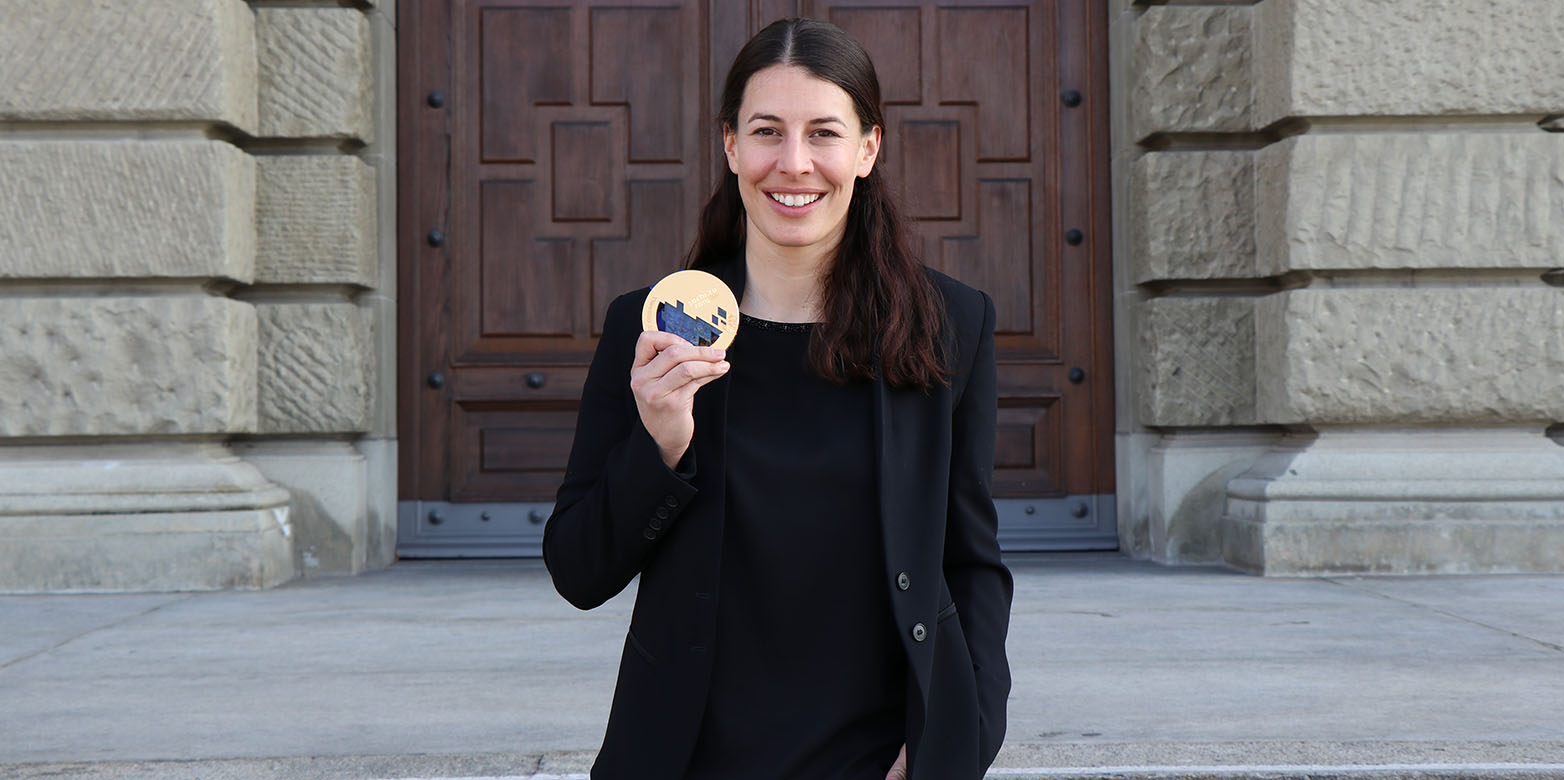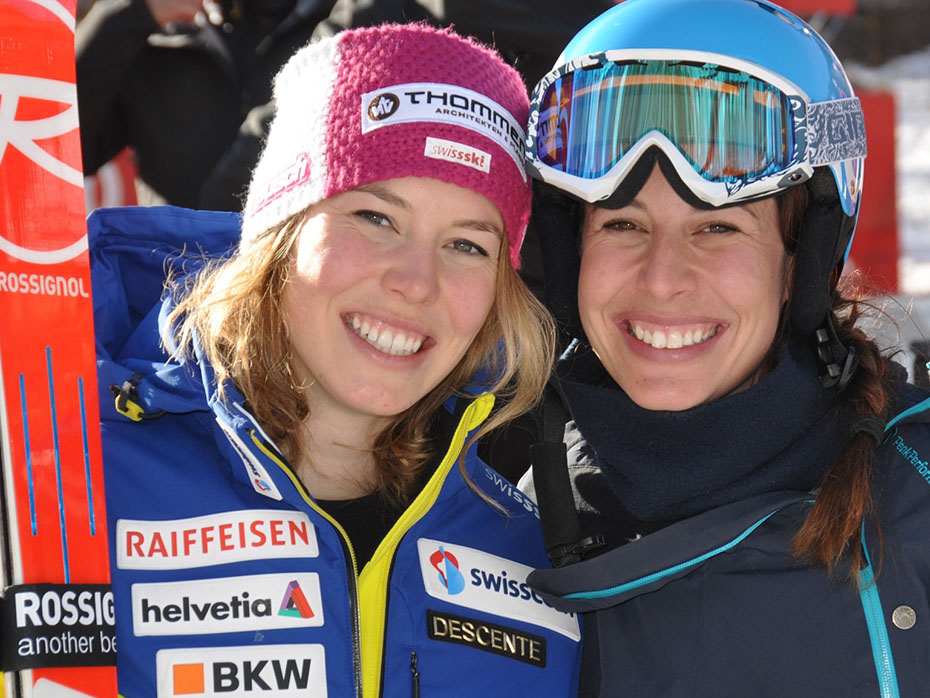Dominique Gisin on sports and life
Olympic gold medallist and former Alpine ski racer Dominique Gisin reveals how sports shaped her life, how injury inspired new passion, and, ultimately, how sports bridges gender, geopolitical, and cultural boundaries in society.

“Movement is important not just for your body, but also for your brain and soul,” says Dominique Gisin, a former Olympian and Alpine ski racer. In a panel discussion during the Sports for Development Forum hosted at ETH Zurich earlier this week, Gisin, who now studies physics at the ETH, contributed to the discussion on how sports shapes individual development and serves as a platform to shape the lives of others. Also speaking in the Forum, Adolf Ogi, former advisor to the UN Secretary General for Sports in the Service of Development and Peace, emphasized how sports offered some of the best lessons in life: “In sport you learn to win without thinking you’re the best and in sport you learn to lose without thinking that it is the end.”
Sports – the best school of life
Ogi’s statement rings true for Gisin who grew up in the Swiss ski village of Engelberg – or the “mountain of angels.” She fell in love with Alpine skiing after trying a variety of sports from ballet to Karate. Gisin learned to ski at about the same time she learned to walk, but when she was 14 years old, she suffered the first in a series of debilitating ski injuries. Unsure of whether or not she would ski again, she spent months thinking about life beyond the “end” of her professional sports career.
When it was clear she would recover, Gisin aimed high applying for an opportunity to become a member of the Swiss Air Force. Like in sports, military pilot training pushed her to the edge of her mental limits. She earned a private pilot’s license and was well on her way to a commercial license, when further injury disqualified her from continuing in the military. Following yet another setback, Gisin’s sheer determination motivated her return to professional skiing and she went on to win a gold medal in the 2014 Winter Olympic Games in Sochi.

Gisin admits that the injuries and competitive losses she has faced in her professional career, taught her some of the most important lessons in life, “Sports taught me patience, perseverance, and most importantly, what to do after you reach your breaking point. I don’t give up easily and these lessons helped me a lot, especially when I began studying physics at ETH,” says Gisin. When Gisin came to the ETH, she went from the top of her sport to just one among the 450 other undergraduate students struggling to pass their Bachelor exams. In order to make the transition, she adopted a new frame of mind – one of humility and hard work, something she learned from her ski idol Vreni Schneider. “No matter what your passion, you have to put your heart into it,” Gisin advises.
The unifying nature of sports
In addition to her role as a full-time physics student, Gisin uses her relative sports fame to serve as an ambassador for Swiss Red Cross bringing visibility to the plight of people in need in places like Bolivia, Nepal, and Kyrgyzstan where she has travelled recently. She also supports the fit4future project, teaching children about nutrition and movement.
“Sports unites us more than anything else,” says Gisin. It transcends cultural, geopolitical, and even gender boundaries. The United Nations’ Agenda 2030 for Sustainable Development acknowledges the contribution of sports in promoting peace, tolerance, respect, in empowering women and youth, and in promoting health, education, and social inclusion. Gisin was fortunate not to have to face some of the gender barriers that can exist in sports, “I never thought of myself as different from the guys. I love flying, sports, mathematics, and physics. While I had to overcome cultural and academic barriers, in my experience, I faced few of the gender barriers that others might endure when competing in sports or studying in science. The generation of my grandmother advocated for these freedoms and I honour these women for what they achieved,” says Gisin.
While political turmoil often taints the Olympic Games, Gisin comments, “For the athletes, it is still something very special. At its core roots, the Olympics represent peace and I hope that the core values of the Games will last throughout time.” Sports brings people together making cultural and political barriers seem irrelevant - even if only for a few moments. The Olympics is just one example, Roger Federer’s win in the Australian open is another. “Watching athletes like Roger win is something that touches me,” says Gisin, “because I know what it takes."
